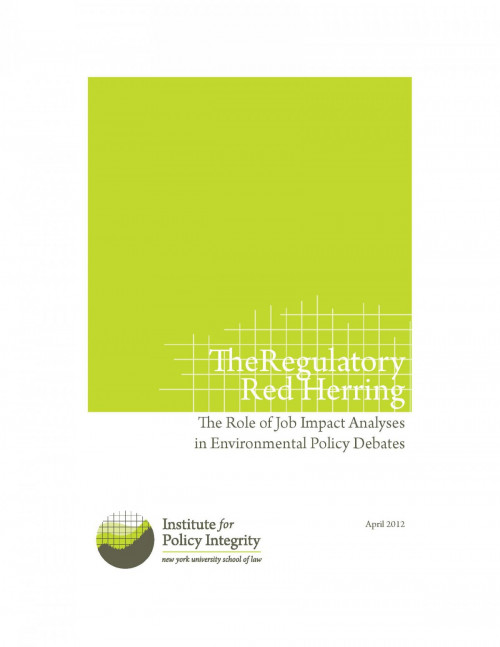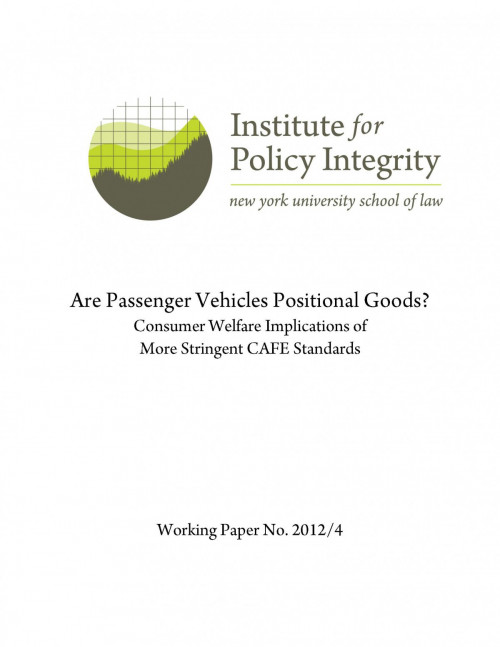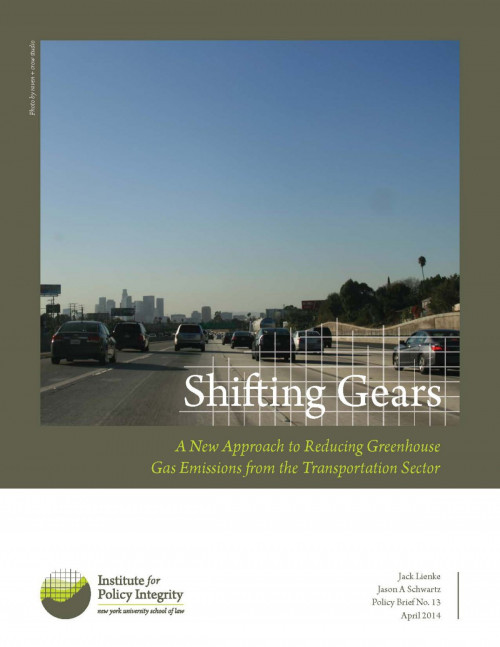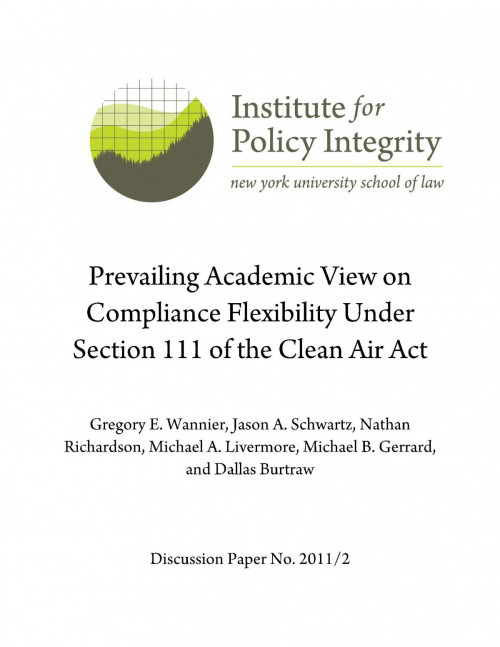-

Regulatory Red Herring
The Role of Job Impact Analyses in Environmental Policy Debates
The debate on jobs and environmental regulation too often relies on thinly-supported forecasts about jobs “killed” or “created” by public protections. In the din, questions about larger costs and benefits of protections for clean air or water can get lost.
-
EPA Releases NSPS for Power Plants
The EPA released its first ever greenhouse gas standards for new power plants after a delay at the beginning of the year. The New Source Performance Standards (NSPS) limit emissions from new plants to 1,000 pounds of carbon dioxide per megawatt hour of electricity produced.
-
Comments to EPA on reconsideration of Boiler MACT
Boiler MACT regulations will take harmful soot out of the air as well as mercury and other heavy metals. It will have a significant positive effect on respiratory and cardiovascular health. But EPA is currently reconsidering some of the rule it deems shaky.
-
Comments to the Virginia Board of Health on Access to Health Care
Recently, women’s health has been a topic of national news. It’s also made headlines in Virginia where the state government has taken steps that could effectively shutter many women’s health clinics.
-
Comments to EPA and DOT on CAFE Standards for Model Years 2017-2025
Cars that hit the streets in 2017 through 2025 will run on far less fuel than they do now. Last summer, the Obama Administration announced a deal with automakers aiming to up the average to 56 miles per gallon and EPA-DOT proposed a new rule that would hold them to that standard.
-

Are Passenger Vehicles Positional Goods?
Consumer Welfare Implications of More Stringent CAFE Standards
Are Passenger Vehicles Positional Goods? examines to what degree vehicles generate consumption externalities that are not currently corrected for by the market, and whether a
uniform downward shift in the size of the passenger vehicle fleet will actually result in reduced consumer welfare. -

The Rebound Effect in a More Fuel Efficient Transportation Sector
Vehicle fuel efficiency improvements through Corporate Average Fuel Economy (CAFE) standards, may lead owners of more fuel-efficient cars may be driving more as their fuel cost per mile travelled decreases. It’s called the “rebound effect” and it has significant policy implications.
-

The Energy Paradox and the Future of Fuel Economy Regulation
Are the benefits of raising the fuel efficiency of America’s auto fleet greater than the costs? The answer may depend on whether or not there is an energy paradox.
-
EPA Delays NSPS
The EPA has again delayed its proposal of New Source Performance Standards (NSPS) targeting greenhouse gas emissions from power plants. The agency passed a September settlement agreement deadline and has not set a date for the actual release.
